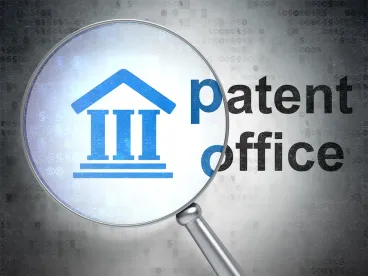The Patent Trial and Appeal Board (PTAB) issued a second update to its Trial Practice Guide, clarifying a number of logistical matters for practitioners and outlining the PTAB’s expectations and preferences for certain stages of the trial process.
While the entire update can be found at this link: Download
here are a few points to note outlined at a high level below:
Discovery – Generally discovery is not available before the PTAB absent a showing under the “interests of justice standard,” based on the factors set forth in Garmin Int’l, Inc. v. Cuozzo Speed Techs. LLC, Case IPR2012-00001 (PTAB Mar. 5, 2013) (Paper 26) (precedential). In general, the party seeking discovery cannot embark on a district court level of discovery and instead must have a “reasonably tailored” request that tends to show, based on already obtained information, that the discovery requested will lead to something useful. In other words, discovery is generally not granted unless the party seeking discovery knows what they are looking for and has some evidence both that it exists and what it will show. The Board noted that generally discovery has been granted regarding evidence of secondary evidence of non obviousness and real parties-in-interest issues.
Claim Construction – As of November 13, 2018, the PTAB has shifted from the “broadest reasonable interpretation” for claim construction to instead follow the same claim construction standard used by Article III federal courts and the ITC (e.g., the Phillips standard). While not new, the update provides an overview of how the Phillips standard works and examples of information that can be relied upon to support constructions. Additionally, the PTAB noted that when there is co-pending litigation in a district court or the ITC, the PTAB expects to be apprised of any developments regarding claim construction in those proceedings as soon as practical.
Patent Owner Response – Patent Owners are free to include expert testimony with a preliminary response, and in the event of institution, can withdraw that testimony and replace it with other testimony if so desired. The Board clarified that arguments made in a preliminary patent owner response must be reiterated in the patent owner response in order to be considered.
314(a) – The PTAB set forth the General Plastic factors for determining wither or not to institute duplicate petitions and provides some guidance on what information is relevant to the various factors. See General Plastic Co., Ltd. v. Canon Kabushiki Kaisha, Case IPR2016-01357, slip op. 15–16 (PTAB Sept. 6, 2017) (Paper 19) (precedential).
Parallel Petitions – In the event a petitioner files two or more petitions to challenge the claims of the patent, the PTAB will require the ranking of the various parallel petitions from the Petitioner (and from the Patent Owner) and provides for an additional short paper to convey this ranking. While the Board noted that certain circumstances may warrant parallel petitions (e.g., when there is a priority issue or when the number of claims is too large to reasonably include in a single petition), the PTAB disfavors more than two petitions absent good cause.
325(d) – The PTAB also set forth the Becton Dickenson factors regarding how duplicative or cumulative art will be analyzed as it relates to the Board’s ability to discretionarily deny a petition. See Becton Dickinson & Co. v. B. Braun Melsungen AG, Case IPR2017-01586, slip op. at 17–18 (PTAB Dec. 15, 2017) (Paper 8) (informative).
Remand Procedures – The PTAB explained that their goal on remand will be to resolve the remand determination(s) within six months. In doing so, they strongly suggest that within 10 days of the remand order the parties schedule a phone conference with their panel to discuss the remand process, deadlines, and any additional outstanding issues.




 />i
/>i
